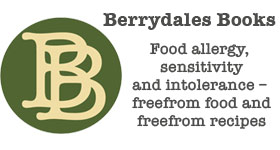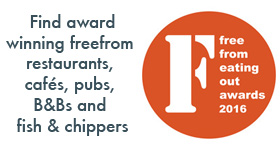|

Taiwanese researchers have found that Kefir, a mildly alcoholic, fermented milk drink containing live microorganisms, can reduce allergic responses in mice.
Kefir, which is popular as a health food in Eastern and Central Europe and often used to wean babies because it is so easily digested, is now gaining fans among Western European consumers keen to take advantage of its probiotic and neutraceutical properties.
The study, from the National Formosa University, looked at the effects of both milk kefir and soy kefir on mice which were injected with ovalbumin to produce an allergic response. (Ovalbumin is an allergenic protein found in egg whites which causes most allergies in young children.)
Levels of the allergy-specific Immunoglobin E (IgE) and G1 (IgG1) were measured and found to be reduced by 66 and 50% respectively after three weeks on the Kefir diet, indicating that the drink may have a role in blocking the pathway involved in allergic responses.
Also of potential significance was the finding that the Kefir had changed the microflora of the intestines, increasing numbers of the beneficial bacteria bifidobacterium and lactobacillus, while decreasing levels of the potentially harmful bacterium clostridium.
Furthermore, the researchers report that Kefir prevents food antigens passing through the intestinal wall and that it is thought to stimulate macrophage (scavenger cell) production, thus improving immunity.
Journal of the Science of Food and Agriculture, DOI: 10.1002/jsfa.2649
More here.
Getting kefir
You can now buy kefir quite widely around the UK – Nourish Kefir (‘made to the traditional recipe from the Caucasus from fresh cow’s milk fermented with living kefir grains’) has a long list of stockists on its website (www.nourishkefir.co.uk) where you will also find lots of information about kefir. Alternatively you can call them on 020 8763 1922.
Or maybe you would prefer
yak’s cheese?...
Professor Brian McBride of Canada's University of Guelph and researchers from the Asia Network for Sustainable Agriculture and Bioresources have been comparing the fatty acid profiles of yak cheese made from milk of yaks grazing on grasses in Nepal's highlands with Cheddar cheese made from milk of Canadian dairy cows fed grain mix.
The yak cheese was three times higher in omega-3 fatty acids and richer in conjugated linoleic acid (CLA) than the cheddar cheese although the flavour and smell, they claimed, was similar to a medium cheddar cheese. Sadly they did not investigate its potential for preventing food allergies. And there is the problem of finding it...
For more on the research see Or-Rashid, M. Journal of Agricultural and Food Chemistry, March 12, 2008; vol 56: pp 1654-1660; for a long tale about the production and export of yak cheese check this story in The Independent.
First published September 2008
More research on the management of cow's milk allergy
Top of page |














